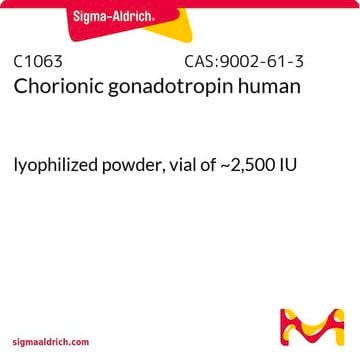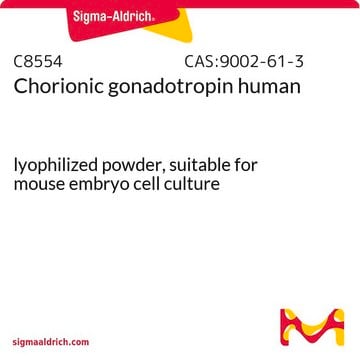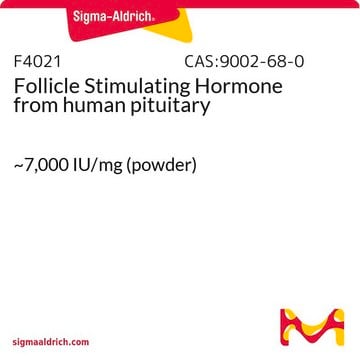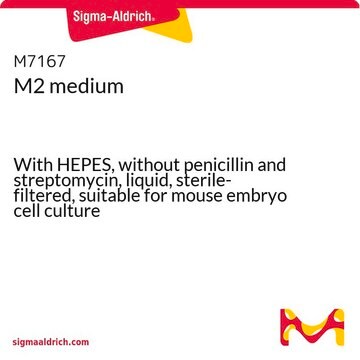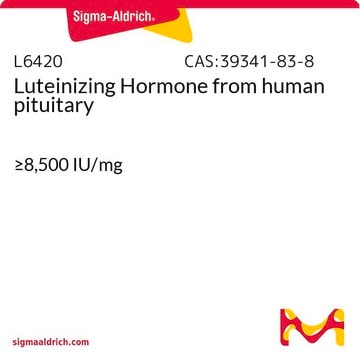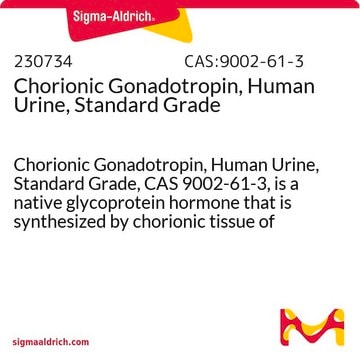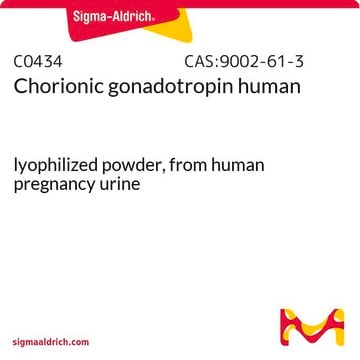CG5
Chorionic gonadotropin human
lyophilized powder, vial of ~5,000 IU
Sinónimos:
Choriogonin, HCG
About This Item
Productos recomendados
biological source
human urine
Quality Level
sterility
sterile-filtered
form
lyophilized powder
mol wt
37.9 kDa
contains
mannitol
packaging
vial of ~5,000 IU
drug control
Home Office Schedule 4.2
impurities
HBsAg, HCV and HIV-1/HIV-2, tested negative
solubility
water: 10 mL/vial, clear to slightly hazy, colorless
UniProt accession no.
shipped in
ambient
storage temp.
−20°C
Gene Information
human ... CGA(1081)
¿Está buscando productos similares? Visita Guía de comparación de productos
General description
Application
- to induce oocyte maturation in cultured follicles
- along with pregnant mare serum gonadotropin (PMSG) to induce superovulation in mice
- as medium component for fetal testes culture to aid steroidogenic responsiveness
Biochem/physiol Actions
Reconstitution
Analysis Note
Storage Class
11 - Combustible Solids
wgk_germany
WGK 2
flash_point_f
Not applicable
flash_point_c
Not applicable
Certificados de análisis (COA)
Busque Certificados de análisis (COA) introduciendo el número de lote del producto. Los números de lote se encuentran en la etiqueta del producto después de las palabras «Lot» o «Batch»
¿Ya tiene este producto?
Encuentre la documentación para los productos que ha comprado recientemente en la Biblioteca de documentos.
Nuestro equipo de científicos tiene experiencia en todas las áreas de investigación: Ciencias de la vida, Ciencia de los materiales, Síntesis química, Cromatografía, Analítica y muchas otras.
Póngase en contacto con el Servicio técnico
